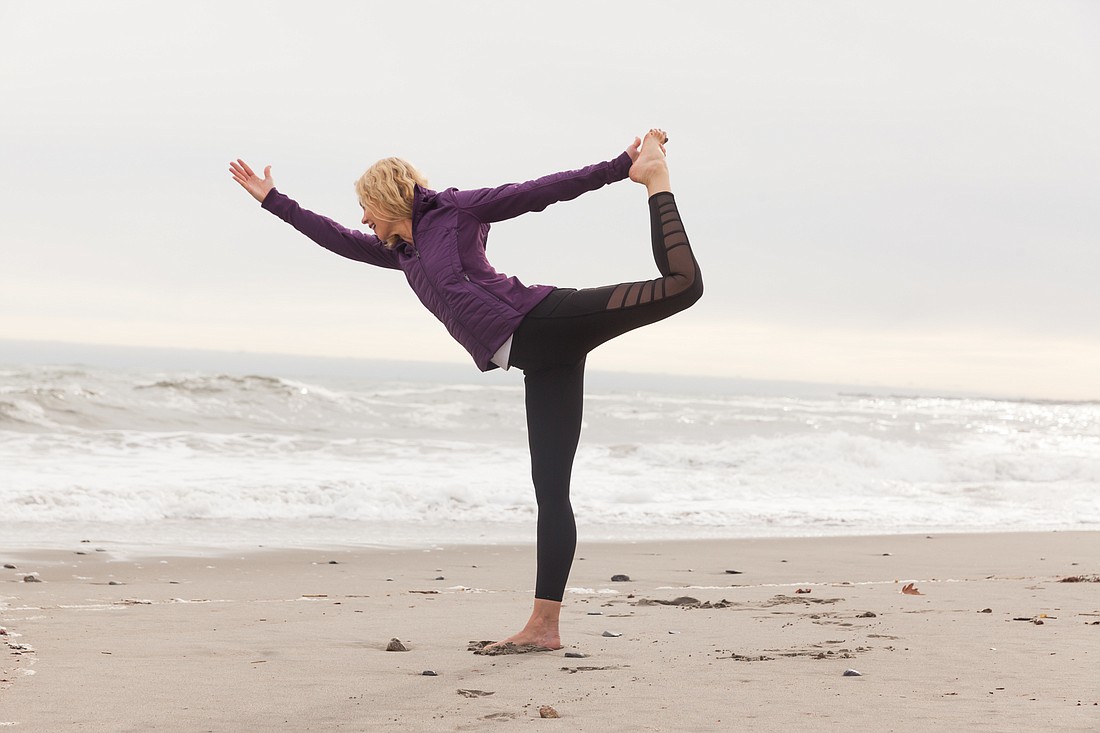- December 26, 2024
-
-
Loading

Loading

You hear people say: “It’s important to take care of yourself. Make time for you!”
Trish Hart, a stress management educator trained through Duke Integrative Medicine and Massachusetts General Hospital, has the science to prove it’s important.
Hart said the body’s stress response originates from an almond-sized section in the middle of the brain called the amygdala, which scours the environment around you, looking for things situations that are unsafe. It can trigger a sense of fear. Then your body reacts in one of four ways: fight, flight, freeze or faint.
The amygdala communicates that stress down the body’s “wandering” nerve, the vagus nerve, to all the other organs.
“When you are underneath stress, your heart rate goes up, your stomach gets upset,” Hart said. “All these things are physical reactions to stress. Self-care calms the amygdala and expands the other part of the brain — that part of the brain known as your pre-frontal cortex. It’s your best self. You’re moving from the reacting part of your brain to the thinking part of your brain. It shuts off the stress response. We allow our bodies to reset [and] begin again.”
Hart said chronic stress can lead to physical or emotional disease, such as blood pressure, diabetes or even cancer.
Additionally, trauma, like the COVID-19 pandemic, can “lock” your amygdala into stress mode. That makes it particularly important to engage in self-care, allow time to refocus and help the body move into a more relaxed state.
Hart and Sarasota psychologist Denise Schonwald share their insights on self-care.
Hart said the mind has 50,000 to 60,000 thoughts per day, of which 90% are the same thought.
“All day long, we think, think, think,” Hart said. “Anything we an do to take us out of our minds is great. That’s the goal.
“Mindfulness is bringing attention to what is present in this moment. It brings the mind away from thoughts that might have happened in the past.”
Hart recommends starting with things like simple breathing exercises or meditation to clear the mind. Doing so, she said, helps create new neural pathways in the brain, which shift the brain’s stress response to a pause moment in which you can choose to react differently.
Schonwald said it’s important to find something you enjoy doing and then to do it. The action is what helps create a sense of balance for an individual.
For Schonwald, her item of balance is playing tennis.
“It's got to be something that brings them a lot of joy,” Schonwald said. “[Being with] animals can do that. It could be creating art.”
Schonwald said there’s not a prescribed amount of time one should set — too much of something could counterproductive — but you should it consistently and make it a priority.
Both Hart and Schonwald said exercise is an important part to maintaining good mental heath. You should aim to exercise for at least 20 minutes a day. Both recommend yoga as a great exercise to keep muscles strong and flexible.
Hart also said that if you’re confined to a desk, make sure to get up and move at least every 90 minutes.
Hart said it is important to eat every three to four hours to ensure your blood sugar levels stay balanced. This helps steady your mood. She recommends eating as many plant-based foods as possible and to be mindful to limit stimulating foods, such as coffee and chocolate.
“It would be great if you drink 64 ounces of water a day too,” Heart said. “That affects your sleep as well.”
Schonwald said that when you feel stress, you want to eat sugars and carbohydrates, but those foods actually feed your sense of anxiety. Instead, find something else to focus on until the urge to stress-eat goes away.
“The body wants to get rid of energy,” she said. “Take a walk to process it.”
Hart said people need to feel connected, so be sure to take time to talk with people, whether through a simple phone call or a virtual meeting.
“We are born to be social beings,” Hart said. “What can happen when you are afraid is you withdraw. We get afraid, and we don’t see others, but we need connection.”
Hart said individuals should strive for seven to eight hours of sleep daily and try to have a routine at bedtime. Try to have a set wake-up time and a set bedtime each day, and make sure to give yourself time to relax.
“Give yourself 30 minutes to an hour to wind down,” Hart said. “Shut off the technology. Take a bath. Read. We need to work with the natural sleep drives of your body.”
Hart said studies show consumption of alcohol before bedtime decreases the quality of one’s sleep.
If you’re having trouble finding time for self-care, consider doing as Hart does.
“I make an appointment with myself on my calendar,” Hart said. “I put Time for Trish. It gets me moving into something I enjoy for self-care.”
It could be playing tennis, creating art or going on a walk outside.
Schonwald said that with the pandemic, many people are spending too much time sitting, so it’s important for mental health to get out of the house.